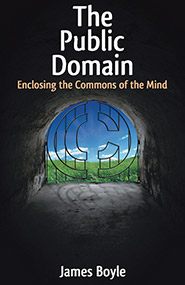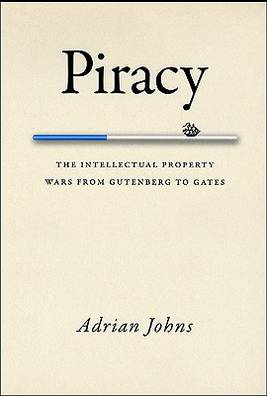I wrote the article below which was published in The Business Times today. Unfortunately one needs to be a paying subscriber to access the website but b Below is the article verbatim.
The Business Times (Singapore) 19 May 2010
Who's who in Law
Law firms and lawyers can adopt it as a means to develop their brand and create a personal following
The Internetz allows me to interact with people around the world about the latest meme – like the deliberate misspelling above. The web is now the worldwide water-cooler. The most well known social media site, Facebook, was based on the high school and college facebook intended for people of that age demographic.
But online networking has transcended age groups with baby boomers and Gen-Xers gravitating to Facebook and other forms of social media in droves. Twittering has become the new verb du jour. Social media is what Web 2.0 is all about.
But what has this got to do with the staid and serious business of lawyering? I would posit – everything. The practice of law in abstract is meaningless. The practice of law has always been about the intertwined relationships between interested parties: the lawyer, client, public and governmental and legal institutions.
The Internet is similarly about relationships. Ironically, the facelessness and pace of technology create a desire for authentic relationships between its users. Technology now enables us, its users, to have those relationships via Facebook, LinkedIn, Twitter or blogging. And this is just the beginning of Web 2.0. In the next few years the richness of applications and modes of networking will astound and delight us.
Nowadays, every self-respecting law firm has a website marketing its services. But that in itself does not create a relationship with its viewers. A website is in essence an online firm brochure.
It says a lot and yet says nothing about the firm and its people. It is static marketing that does not evolve rapidly, not giving its viewers any insight into the strengths, culture, views of the firm and its people.
Social media enables firms to add depth to their online presence. Marketing-savvy law firms try to convey a specific image or brand of the firm, with the most common being expertise in a practice area, understanding of an industry, partnering with the client etc. The usual modes of distribution are through the law firm’s website or through newsletters e-mailed to clients. Unfortunately, these are unilateral modes of delivery, that is, from the law firm to you. There isn’t any meaningful way for the recipient to respond.
Savvier non-legal businesses have realised that their customers want to interact with them and their products or services. Facebook fan pages for products and services are the most common example of how corporations have engaged with their customers and have created “fans” of their products and services. What is better than having your customers tout your product or service?
Tweeting has amazing potential as a marketing tool. The most well known case study about how Twitter can be used to generate revenue is @DellOutlet. Dell has generated more than US$6 million in revenue since 2007 by tweeting to its 1.5 million followers of the latest Dell Outlet deals. Twitter gives the ability to simply send out timely information in very short digestible morsels (within a maximum of 140 characters) to people who are predisposed to the information that is being disseminated.
Referrals in business are super valuable because a referral is a tacit recommendation by one person about another person’s competence. LinkedIn has adopted the notion of recommendations by one LinkedIn user of a LinkedIn profile of another to good effect by creating value in the recommendation. This has helped propel the number of LinkedIn members to over 40 million. Recommendations say a lot about the person and how that person is viewed by others who have worked or interacted with him or her. If I were hiring someone, I would definitely check out that person’s LinkedIn page. I would be a little wary if there were no recommendations.
It therefore seems intuitive that law firms and lawyers should adopt social media as a means to develop the firm’s brand as well as their personal brand.
Law firms in the US have embraced social media much more than any other jurisdiction I’ve seen. The fact that the US has historically been more aware of the power of marketing fuelled by the power of technology together with a large thriving legal market has resulted in a plethora of web services catering specifically to lawyers. For example, LexBlog is a blogging service focused solely on lawyers and Avvo is a lawyer rating service. Twitter too has been adopted and used to develop awareness and credentials. My friend, Susan Lyon (@SusanLyon), a privacy attorney in Seattle has in a short time built up 564 followers of her tweets on privacy issues. She has developed credibility and awareness in her field of practice.
The US legal blogosphere is thriving with thoughtful commentary on current issues and judicial decisions. Such an ecosystem can happen in Singapore too. A fan page on Facebook for a law firm is probably not something I would advise but an insightful blog (or ‘blawg’ as it is known in legal online circles) focusing on the issues of the day certainly helps the firm’s credentials. I was impressed by the daily updates on the Climate Change blog (www.climatelawreport.com) by the firm K&L Gates as it covered the Copenhagen climate change talks.
There is no shortage of legal expertise in Singapore. I can envisage Singapore law firms blogging about issues such as the property market (a topic close to everyone’s heart in Singapore), foreign investment, setting up a start-up company etc.
Lawyering is very much an individualistic pursuit. At the end of the day, it is a lawyer’s personal reputation and brand that attract and retain clients. Developing one’s personal brand helps differentiate one lawyer from another. LinkedIn is a good foundation for a fledgling lawyer to become familiar with social media as a means to network with clients and peers. The next leap is probably a big one but I would encourage using Twitter as a means to develop followers who are interested in an area of law.
The brevity of the medium makes tweeting easier than blogging. But there is a skill to being succinct. Legal haiku of sorts. The novelty of tweeting also allows for more latitude in experimentation (and mistakes) in the use of the medium.
Personally, I find blogging creates the most credibility with an audience and is the most rewarding. However, commensurate with those outcomes, it is also the hardest and most time consuming form of social media. The amount of thought and work that goes into blogging about something interesting exceeds the time needed to read the blog by at least a factor of ten. Being a lawyer, I agonise over words and there is continual fact-checking. There have been times when I’ve thought of giving up my blog only to have someone totally unexpected compliment it. I believe that a blog written authentically develops a relationship with the reader. When you achieve that, you will have achieved credibility.
So what is stopping Singapore law firms and lawyers from embracing social media? Nothing, I believe. The financial hurdle is low. What is needed is passion about the medium, a willingness to embrace change and the belief that the Internet can network people from the societal to the personal level.
The writer practises Intellectual Property and Information Technology law at TSMP Law Corporation. His firm disavows all his non-billable views which can be found at www.ghows.com and you can follow him at @bghows






